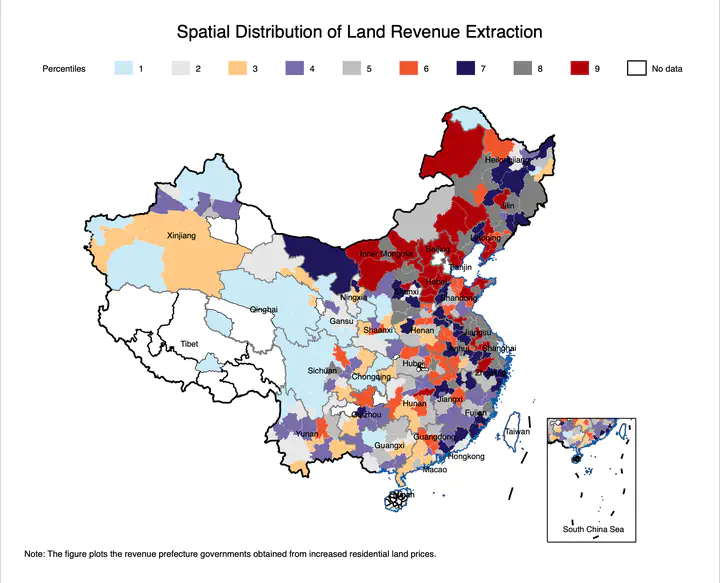Promotion Incentives, Political Competition, and Public Land Prices

Abstract: Institutions shape political incentives and economic outcomes. This paper studies two growth-supporting institutions: meritocratic promotion and political competition. I focus on the context of China, where the two institutions underpin its economic growth, and investigate local governments’ allocation of residential land. I argue that promotion incentives and political competition prompt local leaders to raise residential land prices during sales and minimize compensation during expropriation. Despite driving economic growth and enhancing promotion prospects, this approach engenders significant disparities in rent distribution that favor governments, resulting in citizens’ increased conflict, reduced trust, and lowered evaluation of local authorities. These effects are more pronounced among the younger cohort. I test my argument using a regression discontinuity design on 0.6 million land transactions and employ a cohort analysis on nationally individual-level surveys. My findings indicate that growth-favoring institutions can yield adverse political outcomes, challenging long-term economic progress.